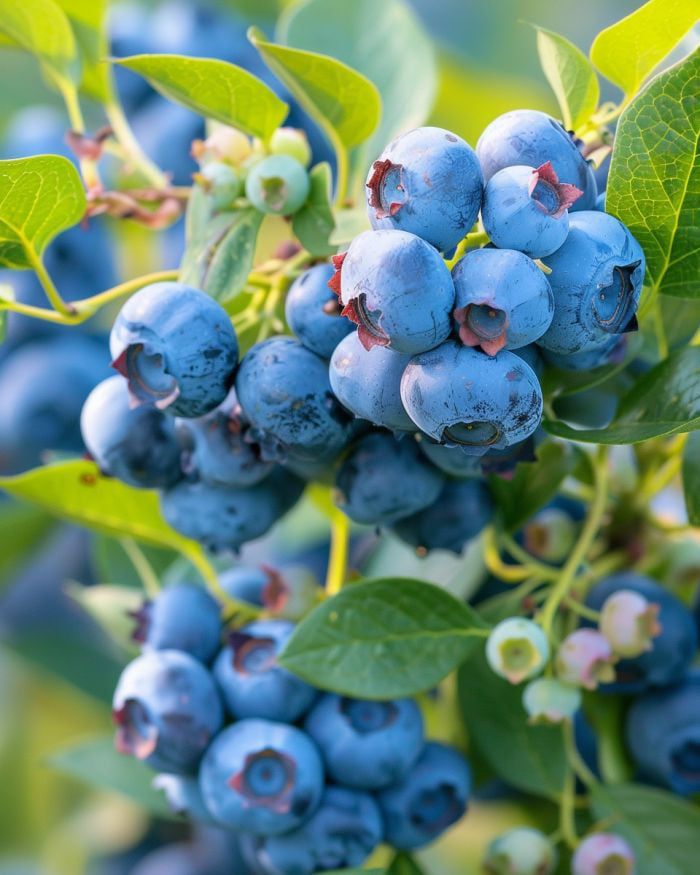4. Mulch for Moisture and Weed Control
Mulching is a simple yet effective way to promote healthy blueberry growth. Mulch helps retain moisture, suppresses weeds, and maintains a consistent soil temperature, which is especially important during hot summers and cold winters.
Apply a 2-3 inch layer of mulch around the base of the blueberry bush, being careful not to pile it directly against the trunk. Organic mulches such as wood chips, pine needles, or bark work best because they also help acidify the soil as they break down.
Regularly check the mulch and replenish it as needed to maintain its thickness. Mulch can also prevent the roots from overheating during the summer, which can stress the plant.
5. Watering the Right Way
Blueberries have shallow root systems and require consistent moisture to thrive. However, overwatering can be detrimental, leading to root rot. It’s essential to keep the soil moist but not soggy.
Here are some tips for watering your blueberry bush effectively:
Water deeply: Blueberries need deep watering, especially during dry periods. Water the base of the plant thoroughly, ensuring that the roots absorb the moisture.
Use drip irrigation: If possible, install a drip irrigation system to provide consistent moisture directly to the roots without wetting the leaves, which can encourage disease.
Avoid overhead watering: Watering overhead can lead to fungal diseases, especially if the leaves stay wet for extended periods.
Aim to keep the soil consistently moist during the growing season, but be mindful not to saturate the soil.
6. Fertilize with Care
Blueberry bushes require the right balance of nutrients to thrive, but it’s essential to be cautious with fertilization. Over-fertilizing, particularly with high-nitrogen fertilizers, can lead to excessive foliage growth and poor fruit production.
For optimal growth, apply a balanced fertilizer formulated for acid-loving plants. Use it in the early spring, just as the plant begins to show new growth. Avoid fertilizing in late summer or fall, as this can encourage late-season growth that is vulnerable to frost damage.
Organic options, such as fish emulsion or compost, can also be used to feed your plants naturally. Just be sure to follow the recommended application rates and avoid over-fertilizing.
7. Pruning and Shaping the Bush
Pruning your blueberry bush is essential for maintaining its shape, health, and productivity. Pruning encourages better airflow, reduces the risk of disease, and helps the plant focus its energy on producing fruit rather than excessive foliage.
see more on the next page
ADVERTISEMENT

